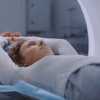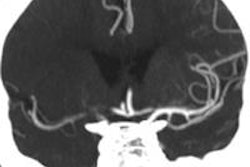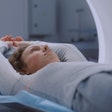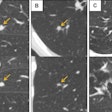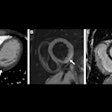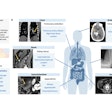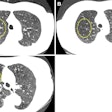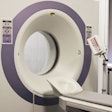Dear AuntMinnie Member,
As Brazil prepares to take on Germany in a World Cup semifinal match today, controversy is swirling around the authenticity of medical images posted over the weekend of injured Brazilian striker Neymar Junior.
As you may know, Neymar took a vicious hit to the back from Colombian defender Juan Zuniga during a tackle at the end of Friday's quarterfinal. Neymar was carted off the field with what the Brazilian team's physician said was a fractured third lumbar (L3) vertebra.
But controversy has been building after Brazilian TV posted a CT image that it claimed was of Neymar's vertebra. As the image went viral on the Internet, many imaging experts pointed out that the pathology on the scan was not an acute L3 fracture; instead, it demonstrated chronic damage to the L5 vertebra -- which is not consistent with taking a knee to the back.
Is the image a fake? Or are Brazilian authorities not being entirely truthful about the nature of Neymar's injuries? Only one thing is for sure: The story adds to the mystique of an already dramatic World Cup. Read the article on our AuntMinnieEurope.com sister site by clicking here.
Medicare cuts to hit rad therapy
It seems that radiation oncology is still in the doghouse when it comes to Medicare reimbursement. The U.S. Centers for Medicare and Medicaid Services (CMS) this month released its proposed physician payment rates for 2015, and the agency is once again targeting radiation therapy for reductions.
CMS is proposing a 4% cut for radiation oncology services and an 8% cut for payments to radiation therapy centers. The cuts come on top of other significant reductions to Medicare payments for radiation oncology in recent years.
What's behind the focus? It's not immediately clear, but CMS has stated that it intends to correct what it calls "misvalued codes," or payment codes for procedures that it believes do not accurately represent the costs of providing the service. Read more by clicking here.
USPSTF denies carotid screening
Finally, it doesn't come as much of a surprise, but the U.S. Preventive Services Task Force (USPSTF) this week held to its existing opinion against ultrasound screening for asymptomatic carotid artery stenosis to reduce the risk of stroke.
The task force gave carotid screening a D rating, meaning it recommends against the use of the procedure and discourages its use. USPSTF based its opinion on a review of the literature, which showed that carotid artery screening led to interventional procedures such as carotid endarterectomy that could have harms and might not be as effective as medical therapies such as statins anyway.
Read more by clicking here, or visit our Ultrasound Digital Community at ultrasound.auntminnie.com.
